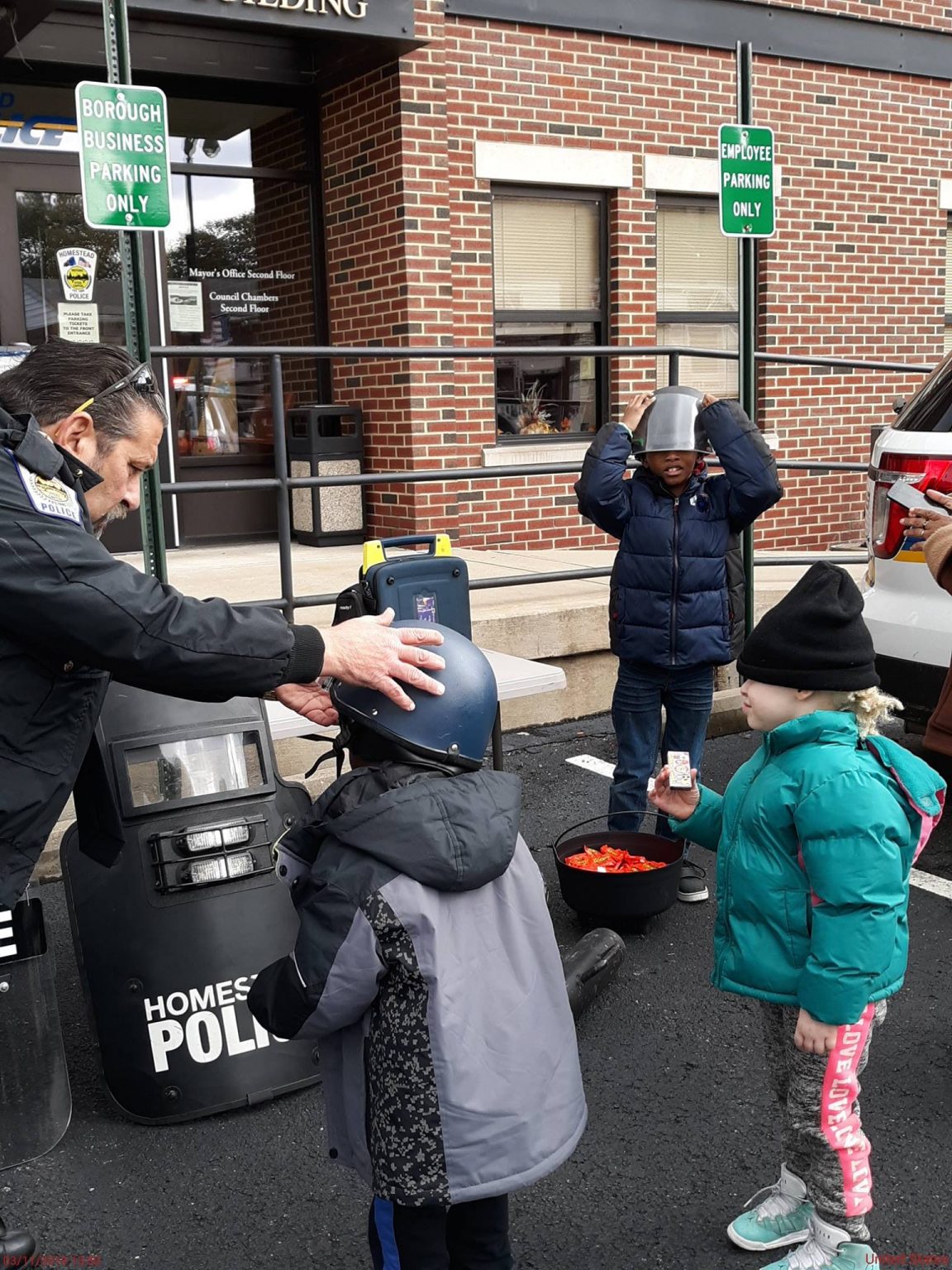Ever wondered who holds the reins when it comes to ensuring your town stays safe? Look no further than the homestead chief of police. This role isn’t just about wearing a badge and commanding authority; it’s about leading with integrity, protecting with purpose, and serving with passion. The homestead chief of police is the linchpin that holds the entire law enforcement machine together, making sure every officer is on the same page and every community member feels secure.
Now, let’s dive into what makes this position so crucial. The homestead chief of police is more than just a title. It’s a responsibility that requires a unique blend of leadership, tactical expertise, and an unwavering commitment to justice. This individual isn’t just any officer; they’re the person who sets the tone for the entire department, shaping policies, and driving initiatives that directly impact the safety and well-being of the community.
But here’s the kicker—being a homestead chief of police isn’t just about enforcing laws. It’s about building trust, fostering relationships, and ensuring that the department operates with transparency and accountability. In a world where public trust in law enforcement can sometimes be shaky, the chief plays a pivotal role in bridging that gap. So, buckle up, because we’re about to explore everything you need to know about this vital role.
Read also:Vintage Clothing Jersey City A Fashionable Journey Through Time
Understanding the Role of a Homestead Chief of Police
Let’s break it down—what exactly does a homestead chief of police do? At its core, this role involves overseeing the day-to-day operations of the police department, but it goes way beyond that. The chief is responsible for everything from managing budgets and resources to developing strategies that combat crime and enhance community safety. Think of them as the CEO of law enforcement, but with a badge and a duty to serve the public.
Key Responsibilities
Here’s a quick rundown of the main duties:
- Supervising and leading police officers
- Developing and implementing department policies
- Engaging with the community to build trust
- Managing budgets and resources effectively
- Collaborating with other law enforcement agencies
These responsibilities might sound straightforward, but they require a whole lot of skill and experience. The homestead chief of police isn’t just managing people—they’re managing expectations, challenges, and sometimes even crises. It’s a job that demands not just competence, but also empathy and a deep understanding of the community’s needs.
What Makes a Great Homestead Chief of Police?
Not everyone can step into the shoes of a homestead chief of police. It takes a special kind of person to lead a police department effectively. But what exactly are the qualities that make someone stand out in this role? Let’s take a look.
Leadership Skills
First and foremost, leadership is key. A great chief knows how to inspire their team, motivate them to perform at their best, and create an environment where everyone feels valued. They lead by example, demonstrating integrity, accountability, and a commitment to fairness. Think of it this way—if the chief isn’t leading with strength and compassion, the entire department could falter.
Tactical Expertise
But leadership alone isn’t enough. A homestead chief of police also needs to have a solid understanding of law enforcement tactics. This includes knowledge of criminal justice systems, investigative techniques, and emergency response strategies. They need to be able to think on their feet, make quick decisions, and adapt to changing situations. After all, the world of law enforcement is anything but predictable.
Read also:Tennessee Electrical License Your Ultimate Guide To Becoming A Certified Electrician
The Importance of Community Engagement
One of the most critical aspects of being a homestead chief of police is community engagement. Building trust and fostering positive relationships with the people they serve is essential. In today’s world, where public perception of law enforcement can be polarized, the chief plays a crucial role in bridging that gap.
Building Trust
Trust isn’t something that happens overnight—it’s built through consistent actions and genuine efforts. A great homestead chief of police knows how to engage with the community, listen to their concerns, and address their needs. Whether it’s through town hall meetings, community outreach programs, or simply being present at local events, the chief’s presence can make a huge difference in how the community perceives the police department.
Challenges Faced by Homestead Chiefs of Police
Being a homestead chief of police isn’t all sunshine and rainbows. There are plenty of challenges that come with the territory. From budget constraints to public scrutiny, the job can be tough. But it’s these challenges that test the chief’s mettle and prove their worth.
Managing Budgets
One of the biggest challenges is managing budgets. Police departments often operate on tight budgets, and the chief has to make tough decisions about where to allocate resources. This involves prioritizing needs, finding cost-effective solutions, and sometimes even making sacrifices to ensure the department can function effectively.
Training and Education for Aspiring Chiefs
So, what does it take to become a homestead chief of police? Education and training are crucial. Most chiefs have a solid background in criminal justice, with many holding advanced degrees. But it’s not just about formal education—it’s also about gaining experience in the field and developing the skills needed to lead a department.
On-the-Job Experience
Experience is everything in this line of work. Aspiring chiefs typically start out as police officers, working their way up the ranks through hard work and dedication. They gain valuable insights into how the department operates, develop leadership skills, and build a reputation for excellence. It’s this hands-on experience that prepares them for the challenges of leading a department.
The Impact of Technology on Law Enforcement
Technology has revolutionized the way law enforcement operates, and homestead chiefs of police are at the forefront of this change. From advanced surveillance systems to data analytics, technology is transforming how crimes are prevented and solved. But with these advancements come new challenges, such as ensuring data privacy and protecting against cyber threats.
Embracing Innovation
A great homestead chief of police knows how to embrace innovation while maintaining the core principles of law enforcement. They understand the importance of staying ahead of the curve and leveraging technology to enhance community safety. Whether it’s implementing new software or training officers on the latest tools, the chief plays a pivotal role in driving technological advancements within the department.
Case Studies: Successful Homestead Chiefs of Police
To truly understand the impact of a homestead chief of police, let’s take a look at some real-life examples. There are countless stories of chiefs who have made a significant difference in their communities, implementing innovative strategies and building strong relationships with the people they serve.
Chief Jane Doe: A Leader in Community Policing
Take, for instance, Chief Jane Doe, who transformed her department’s approach to community policing. By implementing programs that focused on engagement and education, she was able to reduce crime rates and improve public perception of the police. Her leadership style was inclusive, and she prioritized transparency, earning the trust of the community she served.
Conclusion: The Future of Homestead Chiefs of Police
As we’ve seen, the role of a homestead chief of police is multifaceted and vital to the safety and well-being of communities. From leading with integrity to embracing innovation, the chief’s responsibilities are vast and challenging. But it’s these challenges that make the job so rewarding.
So, what can you do? If you’re inspired by the work of homestead chiefs of police, consider sharing this article with others who might find it interesting. Or, if you’re passionate about law enforcement, think about how you can contribute to your community. Whether it’s through volunteering, supporting local initiatives, or simply staying informed, every action counts.
Remember, the work of a homestead chief of police isn’t just about enforcing laws—it’s about creating a safer, more connected community for everyone. And that’s something we can all get behind.
Table of Contents
- Understanding the Role of a Homestead Chief of Police
- What Makes a Great Homestead Chief of Police?
- The Importance of Community Engagement
- Challenges Faced by Homestead Chiefs of Police
- Training and Education for Aspiring Chiefs
- The Impact of Technology on Law Enforcement
- Case Studies: Successful Homestead Chiefs of Police
- Conclusion: The Future of Homestead Chiefs of Police


